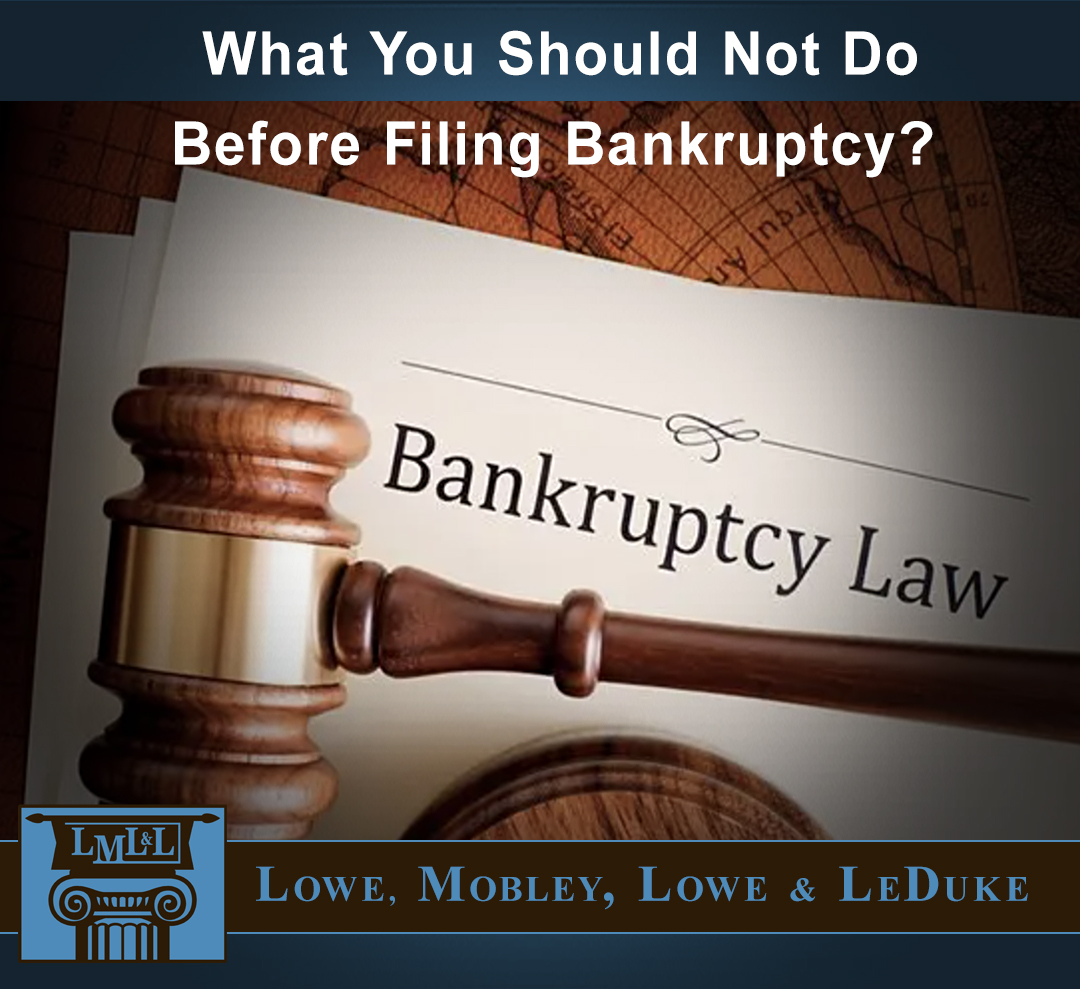
Bankruptcy is a life-changing experience, but if you want it to be a positive one, it’s best to know what NOT to do before filing.
Too many consumers attempt to skirt bankruptcy laws by trying to hide or give away assets that should be part of their filing.
Bankruptcy courts don’t take kindly to that. It’s the job of a bankruptcy trustee to be sure all assets are reported and accounted for and while that may take a while, it’s really hard to hide something and get away with it.
The penalties for that include dismissal of your petition for bankruptcy and could include criminal charges punishable by up to $500,000 in fines and five years of jail time.
People are sometimes desperate and looking for an edge, seeking assurances they will qualify for bankruptcy. That leads to errors.
Here are common mistakes you should avoid before filing for bankruptcy.
Lying about Your Assets
Chapter 7 bankruptcy includes a “means test,’’ a requirement that you disclose all of your assets and income, which determines your capacity to pay off creditors. If you purposely leave out assets or income, trying to help your qualification, your case could be dismissed. You could also be banned from filing on those debts ever again. Eventually, a bankruptcy trustee will have access to your financial records, so it’s unlikely your deception will go unnoticed. You shouldn’t try to hide any creditors, either, because credit-card companies have centralized and computerized information. They will all know you have filed for bankruptcy protection. Bottom line: Tell the truth.
Not Consulting an Attorney
Bankruptcy law is too complicated for the average consumer to understand. Bankruptcy attorneys know all the subtleties, which might escape uninformed people. Example: If you have a child with a part-time job — while still living with you and being claimed as a dependent — their earnings must be counted toward household income. Attorneys should know legal ways to protect assets that could be at risk. It might be tempting to save money in this do-it-yourself era, but filing bankruptcy on your own probably not worth the trouble or risk. In 2017, people representing themselves succeeded only about 5% of the time in bankruptcy filings. An attorney can help you determine which bankruptcy is best for you: Chapter 7 or Chapter 13. Or, if your income is above the Chapter 13 limits, they may recommend Chapter 11 bankruptcy.
Giving Assets (Or Payments) To Family Members
This is a major red flag. You can’t give away your good stuff — cash, property, cars, jewelry, electronics — to friends or relatives with the understanding they will give it back later. It’s dishonest. Giving your car to a family member just before you file for bankruptcy is a clear-cut way to lose the car. If you own the car, it must be listed as an asset or if you still owe money, it must be listed as a liability. If you want to keep your car after filing for bankruptcy, there are strategies in place to help you do that.
Running Up Credit Card Debt
This won’t work, either. The mentality of using your available credit before filing for bankruptcy will catch up to you. After receiving the bankruptcy notification, if the creditor believes you ran up your credit-card balance before filing, it can challenge the request to eliminate some or all of what you owe him. You could end up owing money on your credit cards, even after the bankruptcy is over. Usually, any credit purchases you make within 90 days of filing for bankruptcy are not included in the bankruptcy debts. You might have to pay your credit-card debt in full and creditors could accuse you of fraudulent borrowing. To be safe, once you choose to file bankruptcy, you should stop using the credit card.
Taking on New Debt
Even more than credit-card use, it’s especially irresponsible to take on new debt, especially if you tap into a home equity line. Again, the prudent course is to suspend all debt once you know bankruptcy is the step you’re going to take.
Raiding The 401(k)
If you think it’s good business to raid your 401(k) or IRA retirement accounts to stash away some money or pay off some creditors shortly before filing for bankruptcy, think again. First, paying off some creditors (but not others) is not allowed under the bankruptcy code because you are favoring one creditor over another. More importantly, though, your retirement accounts are exempt when filing bankruptcy so it makes no sense. IRAs, Roth IRS, SEP and Simple IRAs, Keogh plans, 401(k) accounts and pension plans are exempt, so they can’t be seized by creditors or a bankruptcy trustee. In other words, don’t touch ‘em!
Transferring Property to Family or Friends
This is illegal and a certain way to derail your bankruptcy efforts. You are not allowed to transfer any assets for the purpose of protecting them. Look into other ways in which you can keep your house in bankruptcy.
Not Doing Your Research
Not all debt is covered by bankruptcy. Student loans, tax debt, child support and alimony payments are not dischargeable. Do your research and lean on the information offered by trained professionals if you are unsure how to file for bankruptcy or if you should file for bankruptcy. Credit counseling is a good place to start. They can help you weigh the pros and cons of filing bankruptcy and inform you about other options for debt relief.
January 06, 2023 – https://www.debt.org/





